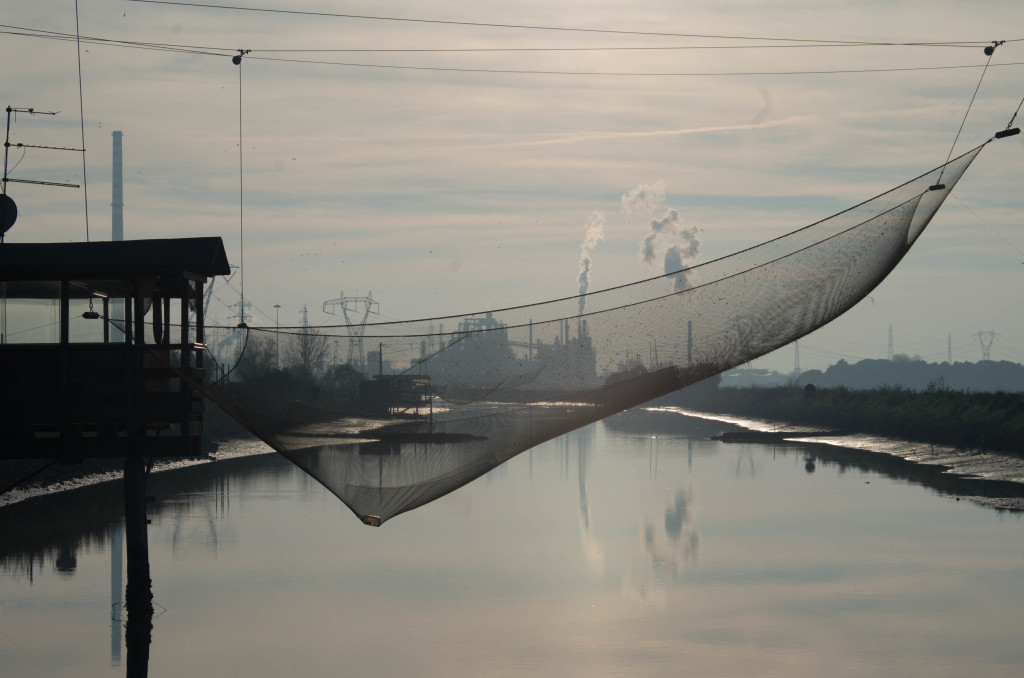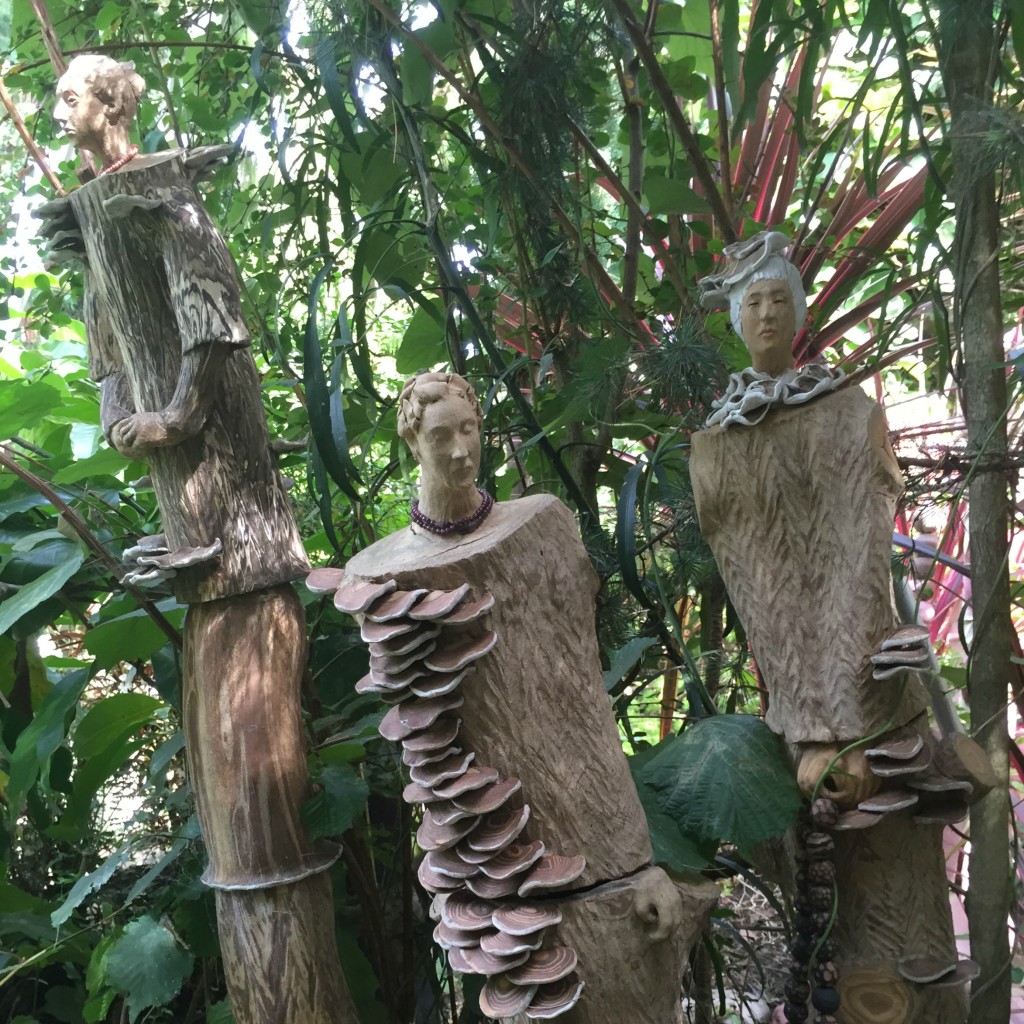Translated from the French by Zoë Skoulding, first published in Jacket 2 Jerome Rothenberg’s blog, Poems and Poetics.
What does and what doesn’t come to pass
Translated from the French by Zoë Skoulding
Of what does or doesn’t come to pass the shadow is
it seems to me the least experienced ghost. Not
that between the two the double witness like
someone deciding to incline one ear or freeze his
breath would remember what had happened. I’m not
sure that that anything did happen when snow
not usually given to ascension rose again despite
the obstacle of clouds. Rose again to where
one might ask.
Or what’s snow doing
when instead of falling it rises. Or why
wouldn’t another ghost well up from what
does or doesn’t come to pass and slide down
there into winter and here into words. And why
would this ghost slide into words here.
In the dust of what has been what sticks is
not flour but a thickness of days that neither
rain nor shadow know how to decipher – in this
dust it survives at two steps from itself the village
that the mountain overhangs. Far much too far away
at the centre of a kitchen where wheat has long since been
replaced by steel and steel by memory the meal
prepared is the only cure for the loss of
oblivion.
There’s an invisible crack in the side of the
mountain. On the hill opposite the ruin and the distant
castle know the story. They are also
above in the sky the ruin and the crack. And there
even in the surface of your skin. You could say a scarred lake.
You could say nothing had been sewn up after the operation.
The shadow not the one that wind blowing in the embers
paints on the wall nor the other seen along houses
or inside – the shadow I say shifts further and
further from the idea I have of a shadow.
And even without that shadow and without
all the others whether living or dead the idea I have
shifts.
And the idea also shifts from the
wind and from the embers not to speak of the wall or
the houses. So much so that I wonder whether
the idea I have of things is any use at all.
What are you hoping for I say to it. What is it that you
really want. As if the question was only for the embers
that make the shadows dance. Or the wind that when
it isn’t painting gives up and relights the mystery.
Surprised by day not breaking any more the moon
and the sun like two old underground thieves
relit the torch and set off. I’m sure that
anyone who’d seen their feeble gleam from a
distance would have felt sorry for them.
What is
certain in all of this is that night fell. And that
a night that falls is a thing that
howls. And that when something howls
the underground thieves use the torch. The torch
that weakly lights the belly of things
and makes the elements sneeze. O howling of
elements that sneeze. O fire that escapes from
the belly of things. And you old thieves do you know
now to whom you can address your underground apologies.
Nearly an image this dark attraction that makes things
stream towards that which escapes the eternal.
How much sleep is needed before the succession
of nights is erased. And how much
is needed to bring back order to the law
of innocences.
Because sleep you see is the innocent
tunnel of time. And it’s in blows of picks and
shovels that descent is dug out. When you slide
down in the evening it’s a long time that
night’s been waiting for working hands. Darkness
shows the way. This is the tunnel. It’s through
this that things stream. Useless to speak of continuity.
When the blows of tools ring out that which escapes
the eternal neither manufactures itself nor ever sleeps.
In front of the closed gate of the cemetery how not
to say to myself that there’s at least one justice
when the earth is turned over. Those who live will stay
outside this time. And inside – the dead.
Visible at last the frontier separating one from the other.
Such an exclusion however nearly makes you want
to die.
You would offer your death to cross the threshold.
You’d furiously wish that a mythical ferryman
would take us to the other side to show us what will be
forgotten. I’m sure you hear me call him. But the
gate won’t open. Has the time passed when you
could enter the land of the dead just like that.
Does this mean that return is impossible from now on.
Does this mean tell me that you’ll never come back.
Sometimes in April as if it had forgotten
its roots the earth shuts its eyes and sets off.
Where it’s going no-one knows. One doesn’t even
see it move. And yet the shuddering
before the journey cannot pass unnoticed.
Rivers overflow lakes dry up churches
are swallowed.
It trembles the earth before
leaving. It trembles with fear. It’s like this
that the core of time disappears. You could say
it’s the stone of a dead cherry spat in an empty basin. But
where does the core of time go when the earth spits it out.
Will it rebound against church clocks to give
the signal. And where does the earth go in April. What
road does it take having spat out the core.
Here it is the boundary with its unfindable
sadnesses returning like a river with no bed towards
its clouds. From up there just before sleeping and
thinking of what one will say to those who are missing –
from up there the stretch it embraces is from now a
vast fog with its workers and machines
kneading the air’s shadow.
Those digging over there are
the architects of an abandoned universe. Their hands imitate
destiny’s shovels. They need a bird of white
augury to finish their work. An arrow not
returning from the sun but from a system in which
no-one has yet set foot. They need a steeper slope
than the one from which the stone keeps rolling back.
And a mist to draw the contours for those who are lost.
When nothing stays on the ground but shadow and
in the sky the sun and no bodies nor houses nor trees as far as
the eye can see – when it comes to this the cosmic sadness
loses its purpose. The sadness living in the coming and
going of things tells time and those who manage it
to stop counting.
Stop counting it says
or count quietly. Or go and count somewhere else.
There where strangeness is a thread and the body a woman
and the house a birth. It’s there that you have to
start counting again. It’s there that a tree is
the first tree and another the second and time
that passes an easy sum. Because whatever lives in its
birth doesn’t need shadow.
And whoever has a woman’s
body holds one end of the thread of strangeness.
What did that night say to you while the axis of things
shifted imperceptibly towards fracas – what did
the smoke say to you as it slid from the kitchen
through the half-open window. You had do you remember your
back against the opposite wall. Someone had asked you to
leave. And now the smoke it was leaving too and it
spoke to you the smoke and you keep silent.
You are the guardian
of silence now. And your back is against the wall.
And towards fracas the axis of things
imperceptibly shifts. It is magnificent that night
but it has no more words. And because the smoke
speaks and speaks to you and only to you and as you are
the guardian of silence who will tell me my love
for how many burnings that smoke was the speaker.
If at the bottom of the lake the swallowed church
didn’t tremble it’s because the legends are old
shells with solid walls. Its bells made no
sound at the signal given above. No
swimmer’s body was reclaimed this summer.
Those who
despite everything ventured beyond the crack
knew how to resist the tales told by the side of
no fire. It’s said the water would have been drawn into itself
like an unbridled spiral that drilled towards its
disappearance. But what can such swallowed water
still wet if not the revenge of wetness. What was he
looking for long ago the swimmer when August after August
the sacrifice of his drowned body brought to life
the old tales that no-one tells now by the side of any fire.
What’s left of the shadow when nothing
is left in its place. Does it fight with itself like
an inexperienced sea on which no ship
moves. Where will the waves break at the moment
of rest.
Or is it like an Icarus the shadow – up close
to a sun using its momentum not to fall but to
write the last page of happiness that no destiny
has promised it. Up there climbing endlessly
and what falls is only its shadow which leaves
and in leaving leaves the sea as well – the sea on which
no ship moves. And nothing is left in its place any more.
And from the promised happiness some petals are already
burning. And there’s no Icarus on his way any more. There’s
only a traveller up there fighting with himself.
 Originally from Luxembourg, Jean Portante currently lives in Paris. A prolific writer, his work ranges from poetry to essays via novels, plays and short stories. He has translated the work of a number of poets into French and is head of Transkrit, Luxembourg’s literary magazine dedicated to translation. In 2003 he was awarded France’s Grand Prix d’Automne de la Société des Gens de Lettres, and in 2011 he received Luxembourg’s National Literature Award. He is widely translated, and in English he has published Point. Erasing (Daedalus, 2003) and In Reality: Selected Poems (Seren, 2013). In 2016 he was awarded the prestigious Priz Servais for his book L’Architecture des Temps Instables. His latest collection is La Tristesse Cosmique, Editions PHI, Paris, 2017.
Originally from Luxembourg, Jean Portante currently lives in Paris. A prolific writer, his work ranges from poetry to essays via novels, plays and short stories. He has translated the work of a number of poets into French and is head of Transkrit, Luxembourg’s literary magazine dedicated to translation. In 2003 he was awarded France’s Grand Prix d’Automne de la Société des Gens de Lettres, and in 2011 he received Luxembourg’s National Literature Award. He is widely translated, and in English he has published Point. Erasing (Daedalus, 2003) and In Reality: Selected Poems (Seren, 2013). In 2016 he was awarded the prestigious Priz Servais for his book L’Architecture des Temps Instables. His latest collection is La Tristesse Cosmique, Editions PHI, Paris, 2017.
Photo from website of the festival of Mediterranean literature in Malta.
Featured image: Photo by Micaela Contoli.





















































